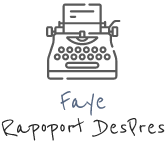These are strange times. The Merriam-Webster dictionary’s first definition of the word “strange” is: “different from what is usual, ordinary, or expected.” What is “usual, ordinary, or expected” differs widely from country to country, culture to culture, community to community, and individual to individual. All I can write about is what is usual or ordinary for me.
Usually at this time of year, as Thanksgiving approaches here in the United States, there is a general sense of anticipation and celebration. Besides Native Americans, whom I certainly can’t speak for but can only guess have conflicting feelings (at the very least) about the holiday, many Americans anticipate gathering with family and friends to focus on the things for which they’re grateful.
There are plenty of jokes about the challenges and awkwardness of Thanksgiving gatherings that can often involve interpersonal conflicts. The holiday season can also be emotionally difficult for people who are alone. Still, at least based on messaging and marketing, the mood in the country is generally celebratory. Airports and roads become clogged with holiday travelers. Holiday lights hidden in closets are unpacked and hung outside homes and on city streets. Meals are prepared, with the aroma of apple and pumpkin pies drifting from kitchens. On Thanksgiving day, marching bands parade down Broadway in New York City, with millions of people tuned in to watch massive character balloons and wait for the arrival of Santa Claus, who symbolically declares, at the end of the parade, that the holiday season has begun. Ho, ho, ho!
All of that is beginning to happen around me, and in addition, I have two new books to celebrate. The Art of Touch: A Collection of Prose and Poetry from the Pandemic and Beyond (University of Georgia Press), which I co-edited with Joan Schweighardt and which includes one of my essays, was published at the beginning of the month. And on December 1, Soul to Soul: Tiny Stories of Hope and Resilience (Huntsville Independent Press), my own collection of one hundred 100-word stories, finally debuts. I’m hoping the book receives a warm reception and provides jolts of positivity and hope during the holiday season (and beyond).
It feels difficult, however, to truly feel celebratory right now. Too many frightening and dangerous things are happening — and the suffering is compounded by the unleashing via social media of vitriol, misinformation, antisemitism, and conspiracy theories that add to the pain and fear being experienced by many people. A wide range of people are developing or promoting narratives that reflect only one point of view. These narratives, which are often inaccurate or incomplete, at the very least can be deeply hurtful. On a much more serious level, they can be dangerous and inflammatory — even when that’s not what the “poster” intended. They can even incite violence, and all it takes is a quick click to “re-post” and spread them to hundreds, thousands, or even millions of people.
As a writer, much of my life is spent considering words (just as I considered the word “strange” at the start of this post). Words, phrases, and sentences can have incredible power. Creative writers spend much of their time observing, studying, and practicing how to put words together, with the goal of creating poems, essays, or stories that are meaningful and aesthetically pleasing.
Good writers, creative or otherwise, understand the power of the words they present in any arena. So, I wish more writers – and others – were taking a step back right now and considering the words they are putting out into the world and the effect they are having on other people, and most seriously, on the safety of those people.
You can probably tell I am choosing my own words carefully here. I am purposefully not forwarding a particular or political point of view. Social media, for all of its ability to connect us, has revealed itself to be a powerful source of misinformation that has led to everything from alienation to actual violence against others. I have made a purposeful decision, over time, not to contribute to that. For the most part, I fight whatever battles I personally fight in other, less public ways. I have rarely seen anyone’s perspective actually changed by something they read or saw on social media – though I completely understand the impetus to post information that others are not seeing or understanding. I have done it myself, and I still do, though rarely. Maybe, to be honest, I don’t feel safe doing so. Still, there are moments when above and beyond everything else, the most important thing is not to be silent. Knowing the difference isn’t always easy.
I wrote my first children’s book about a feral cat named Little White who was born outdoors in a dangerous environment and found a safe home when I was able to bring her indoors. After living with us for eleven years, Little White sadly left us a few weeks ago. She had a long, happy life, but it was still incredibly difficult and painful to say good-bye and to share her loss with her more than 6000 fans on Facebook. What I’m proud of, however, is that Little White’s message of hope resonated with those thousands of fans. People gravitated over and over to the word “safe” in her story as it described Little White’s rescue and life. I have discovered, more than once, that her story cheered someone up, prompted another cat’s rescue, or taught a child compassion for stray and feral cats. I am proud that Little White, and the words I chose to tell her story both in a book and on Facebook, saved other lives and put something positive out into the world.
The interesting thing is this: sometimes, when I look at the Facebook pages of the people who loved — and still love — Little White, I see that her fans often have opposing political perspectives. On occasion they post images and memes that belittle those who oppose their point of view, having no idea that the people they interact with on Little White’s page might be those very people they feel so adamantly “against.” Yet they all — every one of them — loved a little white cat who showed the world that bridges actually can be built. Their love for her overflows in kind and gentle words for her and each other, regardless of the vitriol they might be forwarding on their pages. They obviously have kindness in their hearts. My guess is they all want to be safe, and they want their loved ones to be safe, too.
Like every human being, I often use words poorly. When I’m tired, upset, or in a tough personal moment, I’ve been known, often enough, to say the wrong thing. I’m not even so sure I said the right things in this blog post. So I’m starting with myself to commit to doing better and to focusing my efforts on what I know to be true, on the people I care about, and, whenever I can, on using words to spread messages of hope (thus Soul to Soul: Tiny Stories of Hope and Resilience). Because to be honest, during this strange holiday season, I need hope as much as anyone.

